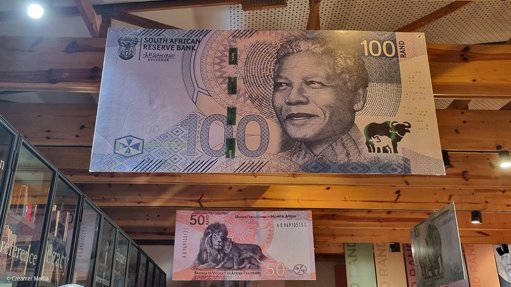Lies about Eskom and energy
A whole new culture of reporting on State-owned electricity utility Eskom, climate and energy has arisen.
This country has a number of good-quality, intelligent energy experts but, deeply regrettably, their views are often not published, as they are not very popular. For example, I have frequently written that you cannot run an iron-ore smelter on renewable energy in the middle of a windless night (of which, in Tshwane, there are plenty) but nobody cares. It is not a popular view.
However, a new breed of energy expert has arisen, along with a new breed of journalist. None of these has ever run a power system (oh, I have). They may have some electrical knowledge. What they are good at is stating their opinions as fact and, almost invariably, their opinions just make good headlines, such as ‘Eskom crisis will deepen – energy expert’ and ‘Municipalities prepare for Stage 10 load-shedding’.
The problem with the ‘energy experts’ is that their opinions are often wrong. As an example, they state that Eskom problems are due to bad management. In point of fact, Eskom problems are due to theft and corruption by Eskom staff on a huge scale. Let’s say you need a boiler cleaned. Until recently, they gave the job to somebody who could not do it but got paid well to do it at a price that included a hefty kick-back.
The so-called energy experts also state that Eskom problems are due to a shortage of coal or the cost of coal. In point of fact, the problems were due to the widespread theft of coal and sabotage of systems when Eskom started using rail and conveyors for delivering coal. They further state that Eskom cost overruns are due to expenditure on diesel for standby gas turbines. In point of fact, the overruns are for expenditure allocated for diesel but which just gets stolen. Finally, they constantly refer to Eskom’s “ageing fleet of coal-fired power stations”. In point of fact, the stations, if maintained, can run for a very long time. They are not motor cars – they do not age (Hendrina was fully commissioned in 1976 and is still running).
I now turn to the new breed of journalist. These are all online journalists. When you are an online journalist, there is no limit to the length of the article you can write. The main issue is to make it long so as to get the advert-to-editorial ratio in a good balance and to increase the remuneration per article.
So, the new breeds churn out (I nearly wrote ‘spew’) copy at an alarming rate (today, there is an article which is 48 pages long) and wander from topic to topic with no clear thought.
“So let them,” you may say. I would happily do so if it was not for the propaganda that they spread. One of the things they do is to frequently refer to temperatures at various locations where the previous records have been ‘shattered’ or ‘smashed’. An example: ‘highest-ever UK temperature smashes previous record’. This sounds very ominous – until you find that the new record is 0.2 ºC warmer than a record of 16 years earlier. Another story: ‘The world is now significantly warmer than in the past’. Again, this sounds ominous – until you find that the report they rely on refers to the period from 1880 until now and that the amount of warming is about 0.8 ºC (according to the US National Aeronautics and Space Administration).
We know that there were no real weather satellites before 1966 and that the mercury thermometer was used for measurements before then. They are accurate but how many were in use back in 1880?
The online journalists refer to power stations as ‘spewing’ or ‘belching’ greenhouse gases. What they do not seem to know is that there are very few visible emissions from coal-fired power stations. The white ‘smoke’ that one can see is, in fact, steam. And so on
I just wish some rational honesty and thought would prevail with energy experts and new journalists. Please.
Article Enquiry
Email Article
Save Article
Feedback
To advertise email advertising@creamermedia.co.za or click here
Comments
Press Office
Announcements
What's On
Subscribe to improve your user experience...
Option 1 (equivalent of R125 a month):
Receive a weekly copy of Creamer Media's Engineering News & Mining Weekly magazine
(print copy for those in South Africa and e-magazine for those outside of South Africa)
Receive daily email newsletters
Access to full search results
Access archive of magazine back copies
Access to Projects in Progress
Access to ONE Research Report of your choice in PDF format
Option 2 (equivalent of R375 a month):
All benefits from Option 1
PLUS
Access to Creamer Media's Research Channel Africa for ALL Research Reports, in PDF format, on various industrial and mining sectors
including Electricity; Water; Energy Transition; Hydrogen; Roads, Rail and Ports; Coal; Gold; Platinum; Battery Metals; etc.
Already a subscriber?
Forgotten your password?
Receive weekly copy of Creamer Media's Engineering News & Mining Weekly magazine (print copy for those in South Africa and e-magazine for those outside of South Africa)
➕
Recieve daily email newsletters
➕
Access to full search results
➕
Access archive of magazine back copies
➕
Access to Projects in Progress
➕
Access to ONE Research Report of your choice in PDF format
RESEARCH CHANNEL AFRICA
R4500 (equivalent of R375 a month)
SUBSCRIBEAll benefits from Option 1
➕
Access to Creamer Media's Research Channel Africa for ALL Research Reports on various industrial and mining sectors, in PDF format, including on:
Electricity
➕
Water
➕
Energy Transition
➕
Hydrogen
➕
Roads, Rail and Ports
➕
Coal
➕
Gold
➕
Platinum
➕
Battery Metals
➕
etc.
Receive all benefits from Option 1 or Option 2 delivered to numerous people at your company
➕
Multiple User names and Passwords for simultaneous log-ins
➕
Intranet integration access to all in your organisation


















